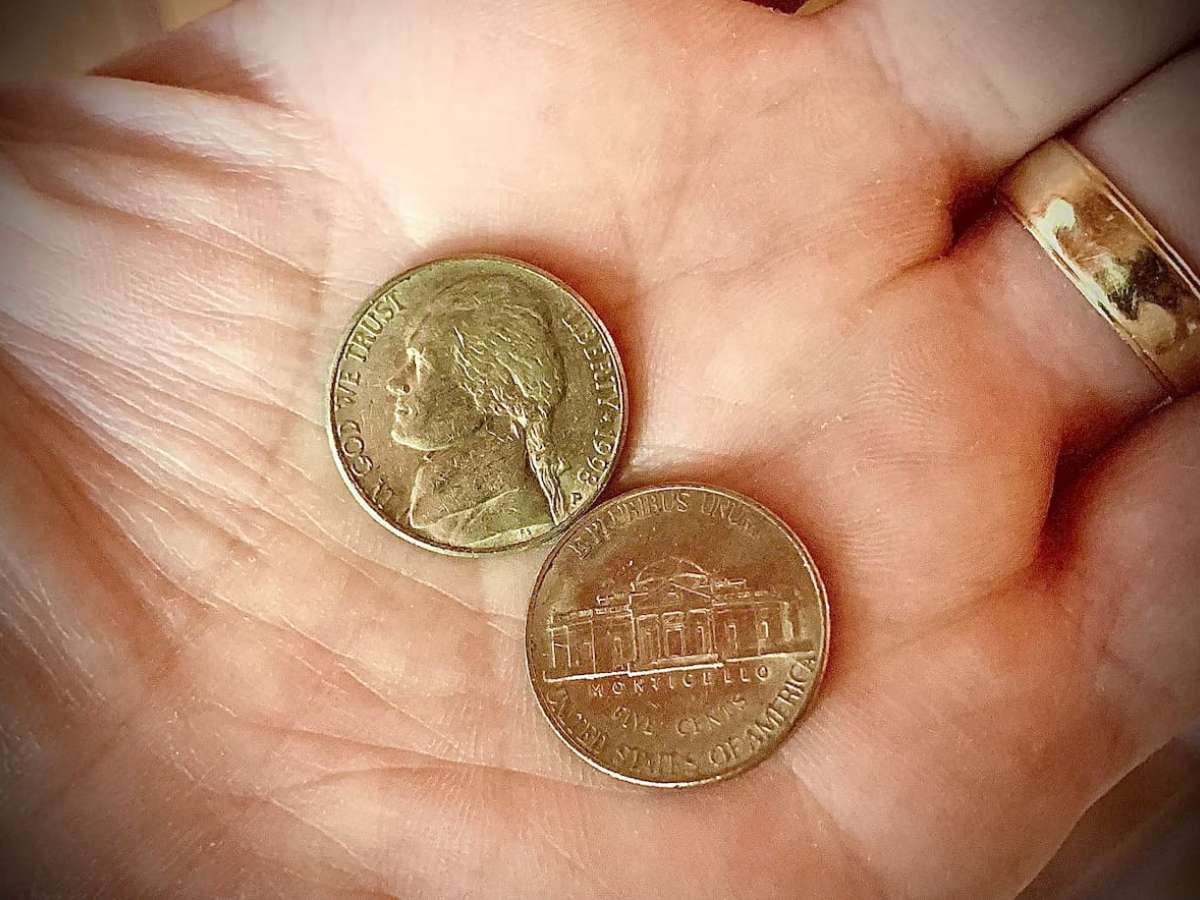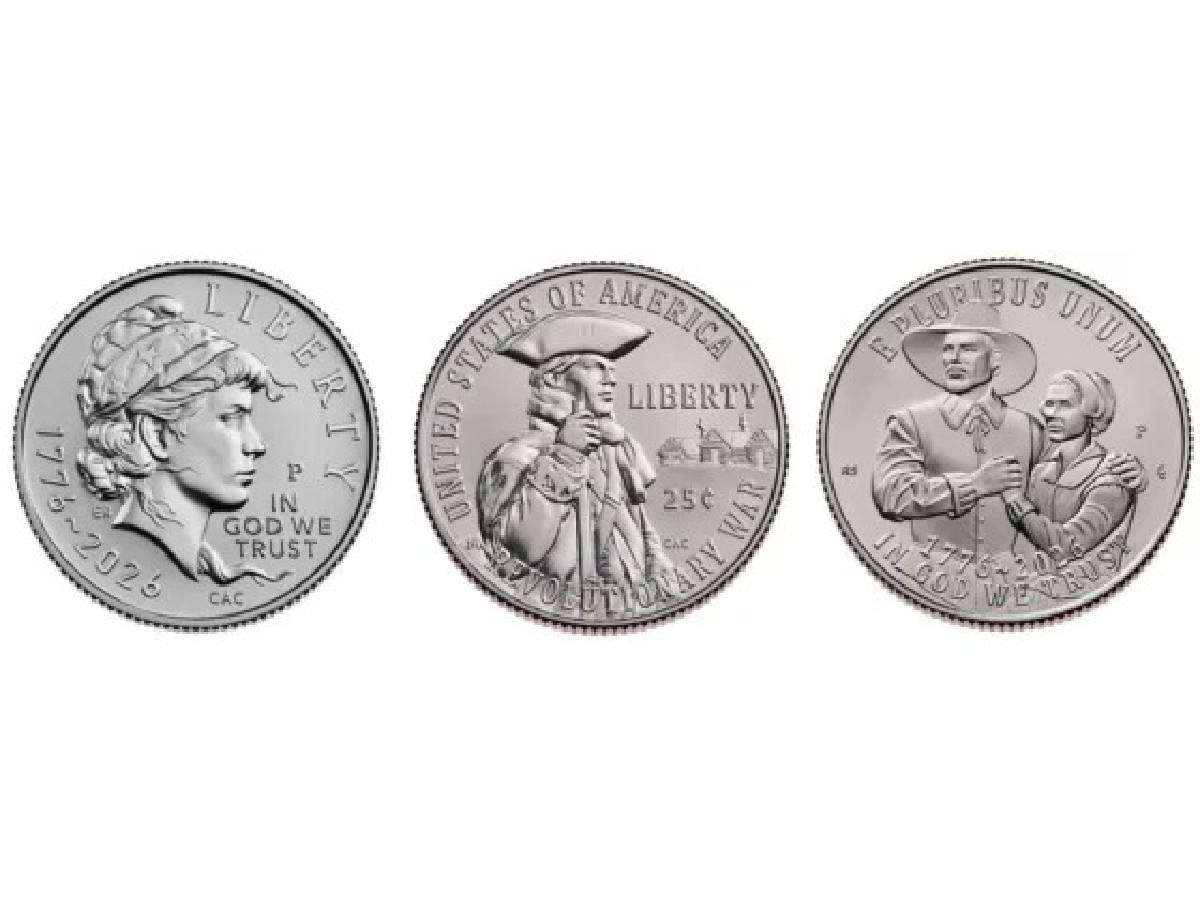I found a 1998 nickel the other day and wondered if it was worth more than face value.

It’s natural to wonder what these old-style Jefferson nickels (with the president’s head seen in a side profile) are worth — because they’re becoming harder and harder to find these days.
While a typical, worn 1998 nickel is worth just its face value, there actually are some rare and valuable 1998 nickels you should know about.
In this article you will learn some interesting things about nickels from the year 1998:
- Fast Facts About The 1998 U.S. Nickel
- What The Letters “FS” Mean On A 1998 Nickel
- Mintage Numbers For 1998 Nickels
- How Much A 1998 U.S. Nickel Weighs
- 1998 Silver Nickel Values (Circulated, Uncirculated, And Proofs)
- How Much “Full Steps” 1998 Nickels Are Worth
- The Value Of Rare 1998 Error Nickels
Fast Facts About 1998 U.S. Nickels
Before we get into which 1998 nickels you should be looking for, let’s talk about the important factors that make some 1998 nickels valuable.
Mint Marks On 1998 Nickels
First off, you’re going to see a little mint letter stamp on the front (obverse) of each 1998 nickel just under the date. These little letters are called mintmarks, and they indicate which mint struck the coin.
There are 3 possible mintmarks that you’ll find on Jefferson nickels of the era:
- P = Philadelphia Mint
- D = Denver Mint
- S = San Francisco Mint
What’s The “FS” Under Jefferson Mean On A Nickel?
The letters “FS” under the bust of Thomas Jefferson on the obverse of the nickel are the initials of designer Felix Schlag.
He designed the motif we see on the nickels struck from 1938 through 2004 — with the side profile of Jefferson on the front and the view of the president’s personal Virginia home (Monticello) on the back.
How Many 1998 Nickels Were Made?
Here’s a rundown on mintages for all 1998 nickels:
- 1998-P nickels — 688,272,000
- 1998-D nickels — 635,360,000
- 1998-S nickels (proofs) — 2,086,507
What Do 1998 Nickels Weigh?
A typical 1998 nickel has a standard weight of 5 grams.
However, legal tolerances for this coin are .19 grams plus or minus.
This means an uncirculated, legally struck Jefferson nickel could weigh as little as 4.81 grams or as much as 5.19 grams.
Worn specimens may weigh even less than 4.8 grams.
Do you need a coin scale? These are the best scales for weighing U.S. coins. (Another helpful tool for inspecting your coins more closely is a coin magnifier.)
If you find an especially light nickel, it may be a counterfeit piece, it might have been dipped in acid, or there’s a possibility that it was struck on a penny planchet. (I’ll talk a bit more about wrong-planchet errors with 1998 nickels in a moment.)
All 1998 Nickel Values Today
As I’ve already mentioned, the vast majority of all circulated (worn) 1998 nickels you find in pocket change, coin jars, or most elsewhere are worth just their face value of 5 cents. However, there are many 1998 nickels worth much more than that.
For starters, all uncirculated 1998-P nickels and 1998-D nickels are worth at least 20 to 30 cents — as long as they’ve never been used as money and show no surface wear of any kind. Outside of obtaining such coins from uncirculated mint sets, your best bet of finding uncirculated 1998 nickels “in the wild” would be in looking through boxes or rolls of coins from the bank.
Typical 1998-S nickels are proof nickels. They have a value of around $2 to $3. While it’s possible to find a 1998-S proof nickel in pocket change (because someone broke it out from a proof set and spent it), if you want one for your collection, you’re going to need to buy one from a coin dealer. Here’s how to find a reputable coin dealer near you.
1998 Full Steps Nickel Value
You’ve probably heard about Full Steps nickels — many are rare and valuable. While it seems a lot of folks are aware of Jefferson Full Steps nickels, let me explain for those who don’t know what I’m talking about…
Flip your 1998 nickel to its back. See that design of Monticello? OK. Now look near the base of the building. You should see a little set of steps there, front and center at the base of the building. If you see 5 or 6 clearly delineated and unbroken lines marking out the steps, you have a Full Steps nickel!
But I don’t want you getting your hopes up too much about that “perfect” 1998 nickel you just pulled from pocket change. The only way you have a Jefferson nickel that would qualify for an official Full Steps designation is if the coin is uncirculated. So that slightly worn 1998 nickel that “seems” Full Steps? Yeah, no… I can tell you off the bat here it’s not a Full Steps nickel.
The reason Full Steps nickels are so valuable is that for the most part they are really scarce. That’s because to achieve a Full Steps nickel, it must be fully struck. And that’s not typical with business-strike nickels. Some issues in the Jefferson nickels series have no known full strikes at all — isn’t that something?
The most valuable 1998-P Full Steps nickel sold for $920 in a 2008 auction. The most valuable 1998-D Full Steps nickel fetched an incredible $2,640 in a 2021 sale!
Bottom line: 1998 Full Steps nickels are definitely worth searching for in rolls and boxes — where uncirculated coins can sometimes be found.
Here’s a video I made with some tips for coin roll searching:
What About The 1998 Silver Nickel Value?
Well, the only Jefferson five-cent coins struck from silver are the wartime nickels — which were minted from 1942 through 1945.
Thus, the 1998 silver nickel is not worth looking for, as none exist.
The Value Of 1998 Error Nickels
Some of the most valuable 1998 nickels are errors and varieties.
Doubled dies, off-center strikes, and broadstrikes… these are all nickel errors worth looking for. Any 1998 nickels with such errors could be worth $10, $25, even many hundreds of dollars.
But remember I teased about wrong-planchet error coins above?
Well, the most valuable 1998 nickel is none other than a 1998 nickel struck on a 1997 Lincoln penny. This amazing error nicckel sold for an astonishing $6,325 in a 2006 auction!




